DIKW Pyramid Presentation: Data Collection, Use, Grit Score Comparison
VerifiedAdded on 2023/06/16
|14
|859
|56
Presentation
AI Summary
This presentation provides an overview of the DIKW (Data, Information, Knowledge, Wisdom) pyramid, emphasizing its application in data collection and analysis. It explores the Russell approach to research and details the DIKW pyramid's process, from data collection to wisdom. The presentation includes a class survey, comparing grit scores to determine the focus and interest levels of students towards long-term objectives. The analysis extends to comparing class grit scores with school-wide scores, concluding that the class exhibits higher interest and focus. Recommendations are provided based on these findings, with references to relevant research on digital skills and transformational leadership.
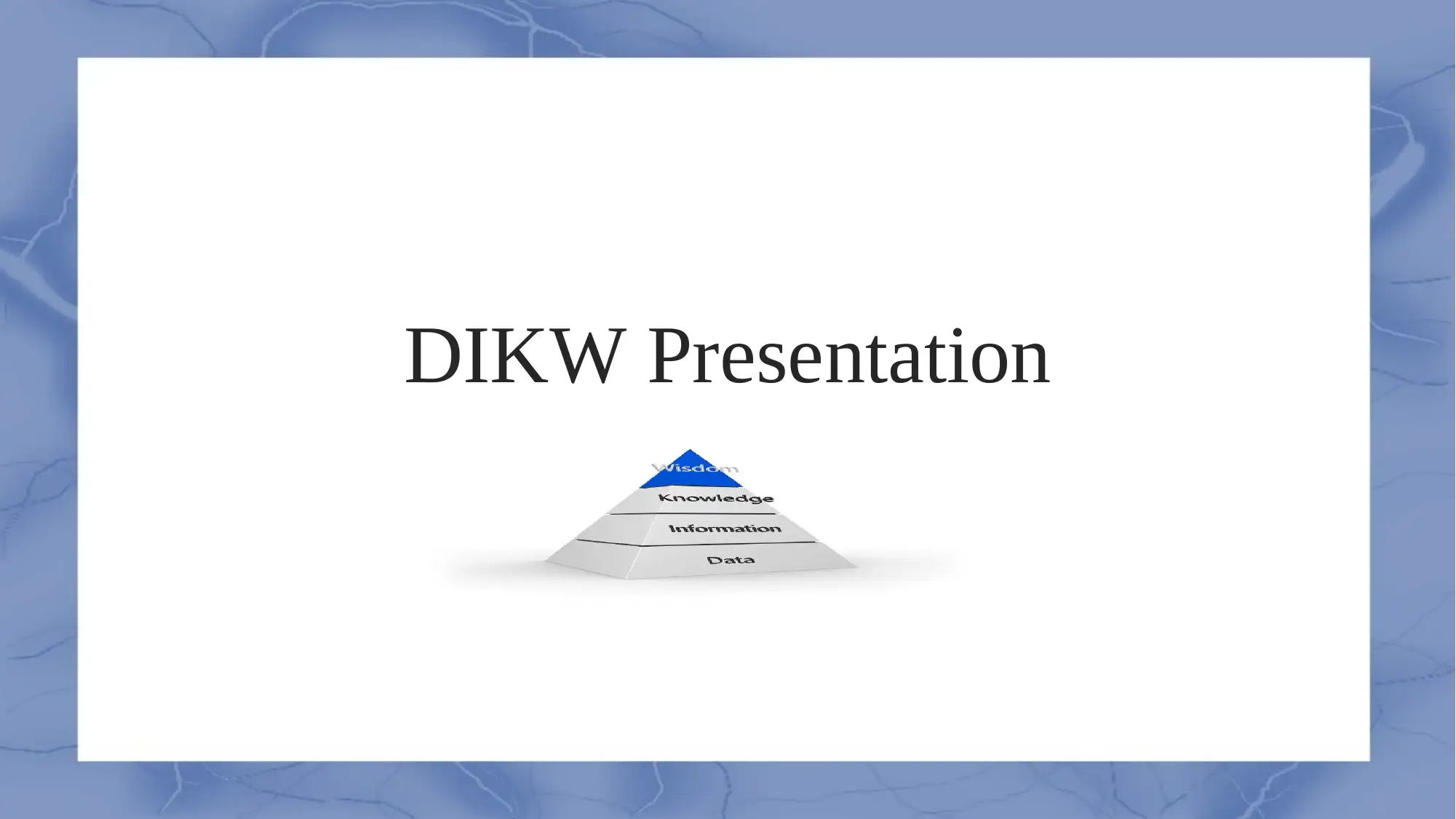
DIKW Presentation
Paraphrase This Document
Need a fresh take? Get an instant paraphrase of this document with our AI Paraphraser
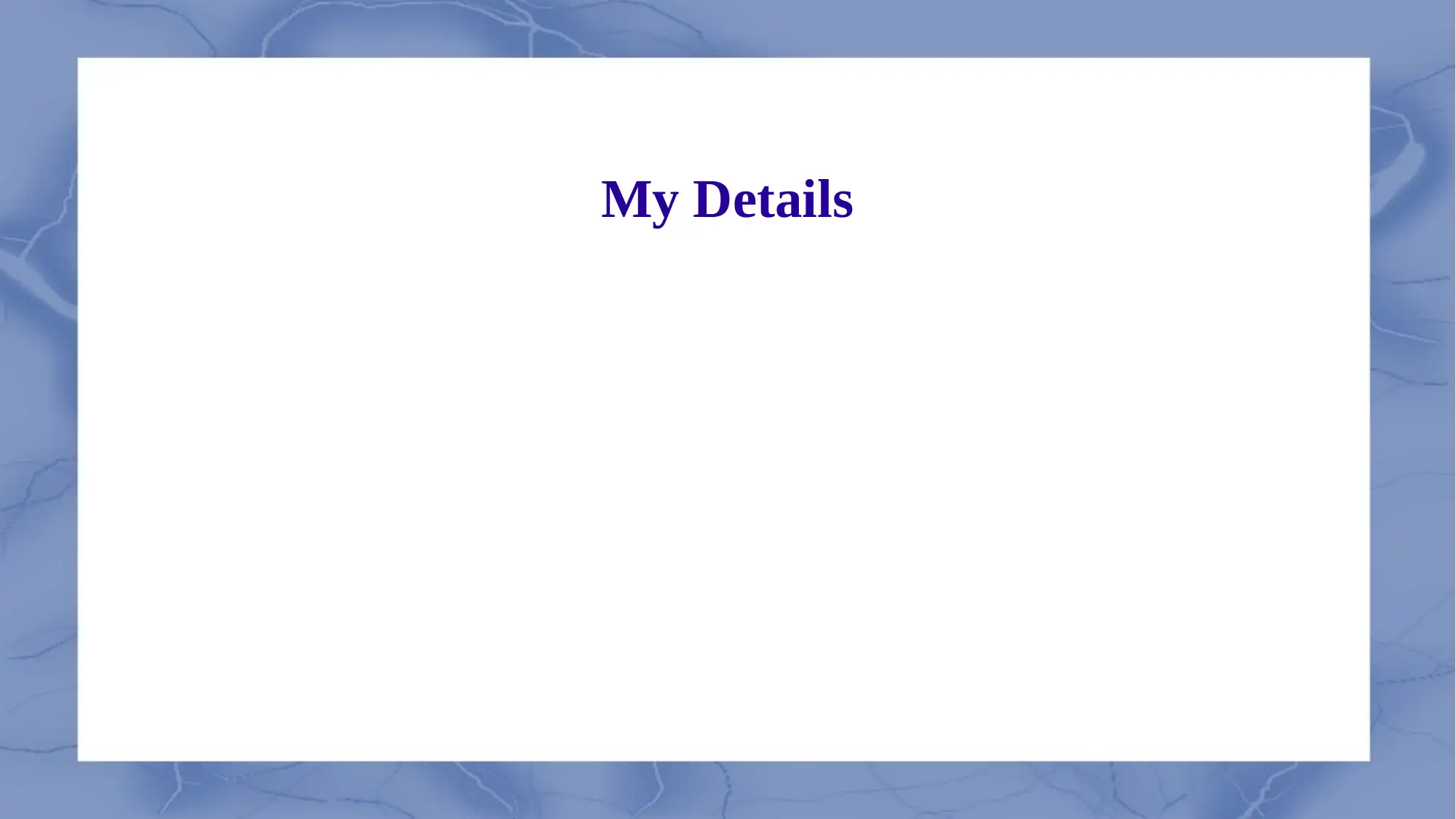
My Details
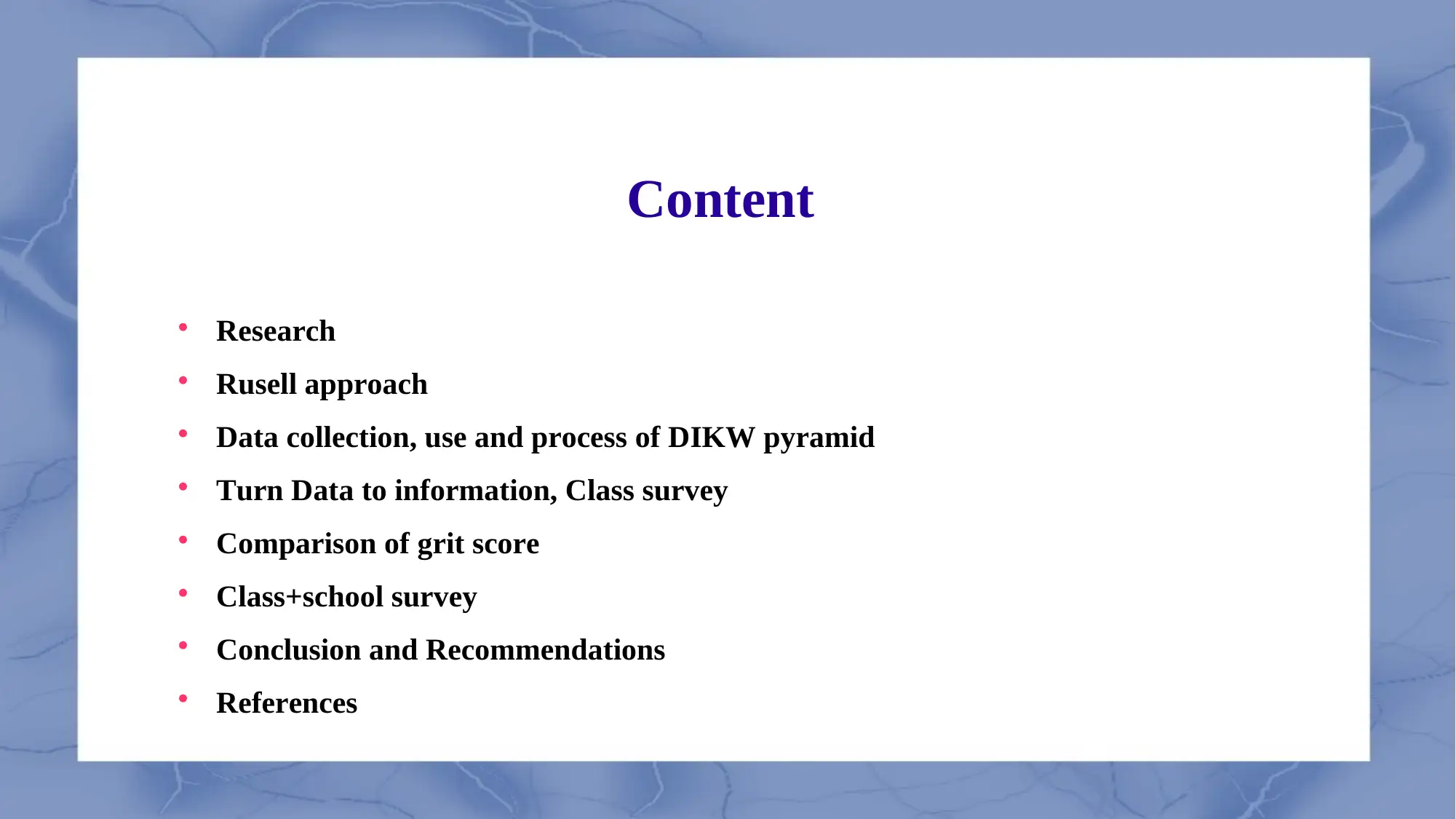
Content
Research
Rusell approach
Data collection, use and process of DIKW pyramid
Turn Data to information, Class survey
Comparison of grit score
Class+school survey
Conclusion and Recommendations
References
Research
Rusell approach
Data collection, use and process of DIKW pyramid
Turn Data to information, Class survey
Comparison of grit score
Class+school survey
Conclusion and Recommendations
References
⊘ This is a preview!⊘
Do you want full access?
Subscribe today to unlock all pages.

Trusted by 1+ million students worldwide
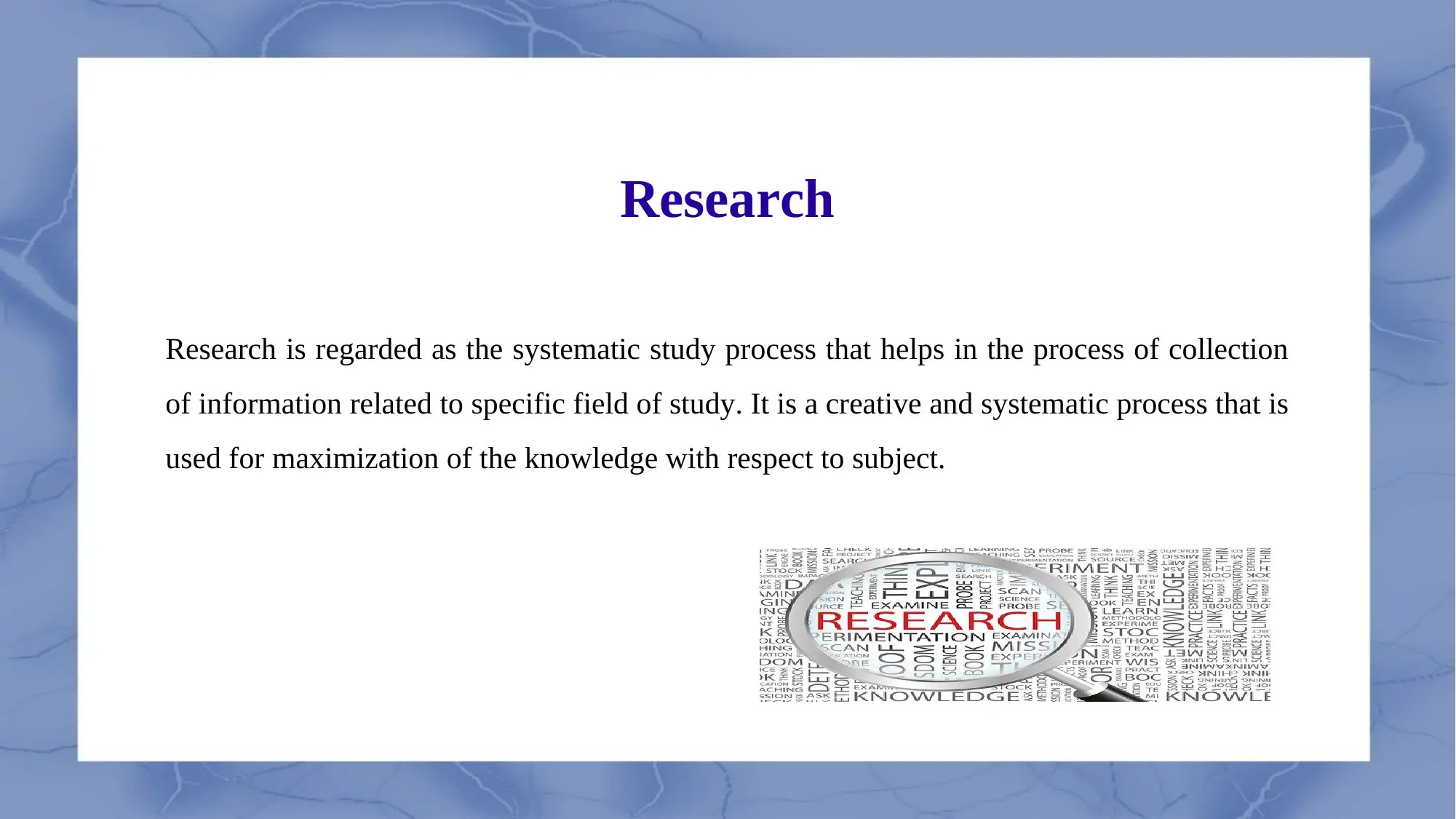
Research
Research is regarded as the systematic study process that helps in the process of collection
of information related to specific field of study. It is a creative and systematic process that is
used for maximization of the knowledge with respect to subject.
Research is regarded as the systematic study process that helps in the process of collection
of information related to specific field of study. It is a creative and systematic process that is
used for maximization of the knowledge with respect to subject.
Paraphrase This Document
Need a fresh take? Get an instant paraphrase of this document with our AI Paraphraser
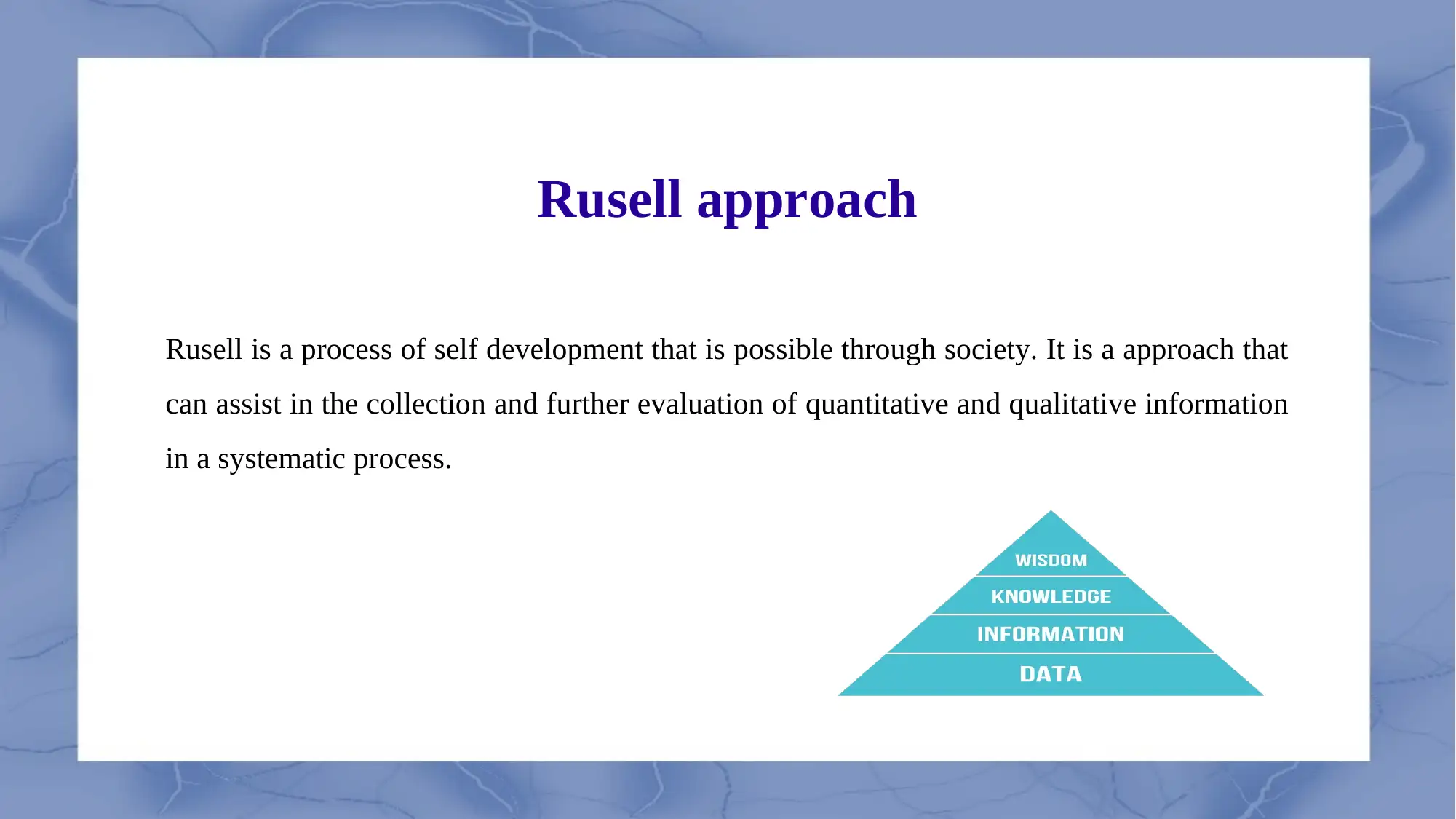
Rusell approach
Rusell is a process of self development that is possible through society. It is a approach that
can assist in the collection and further evaluation of quantitative and qualitative information
in a systematic process.
Rusell is a process of self development that is possible through society. It is a approach that
can assist in the collection and further evaluation of quantitative and qualitative information
in a systematic process.
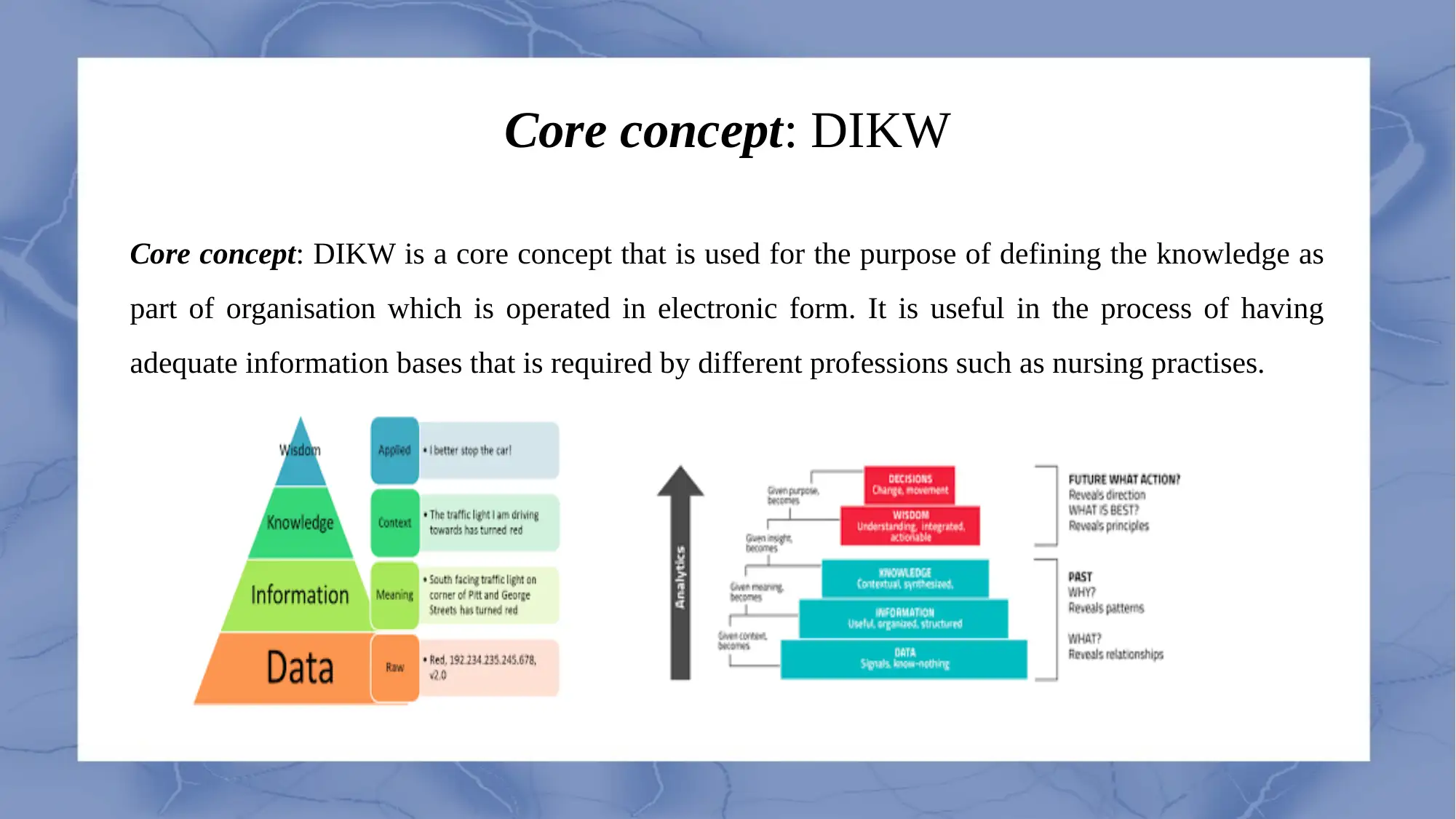
Core concept: DIKW
Core concept: DIKW is a core concept that is used for the purpose of defining the knowledge as
part of organisation which is operated in electronic form. It is useful in the process of having
adequate information bases that is required by different professions such as nursing practises.
Core concept: DIKW is a core concept that is used for the purpose of defining the knowledge as
part of organisation which is operated in electronic form. It is useful in the process of having
adequate information bases that is required by different professions such as nursing practises.
⊘ This is a preview!⊘
Do you want full access?
Subscribe today to unlock all pages.

Trusted by 1+ million students worldwide
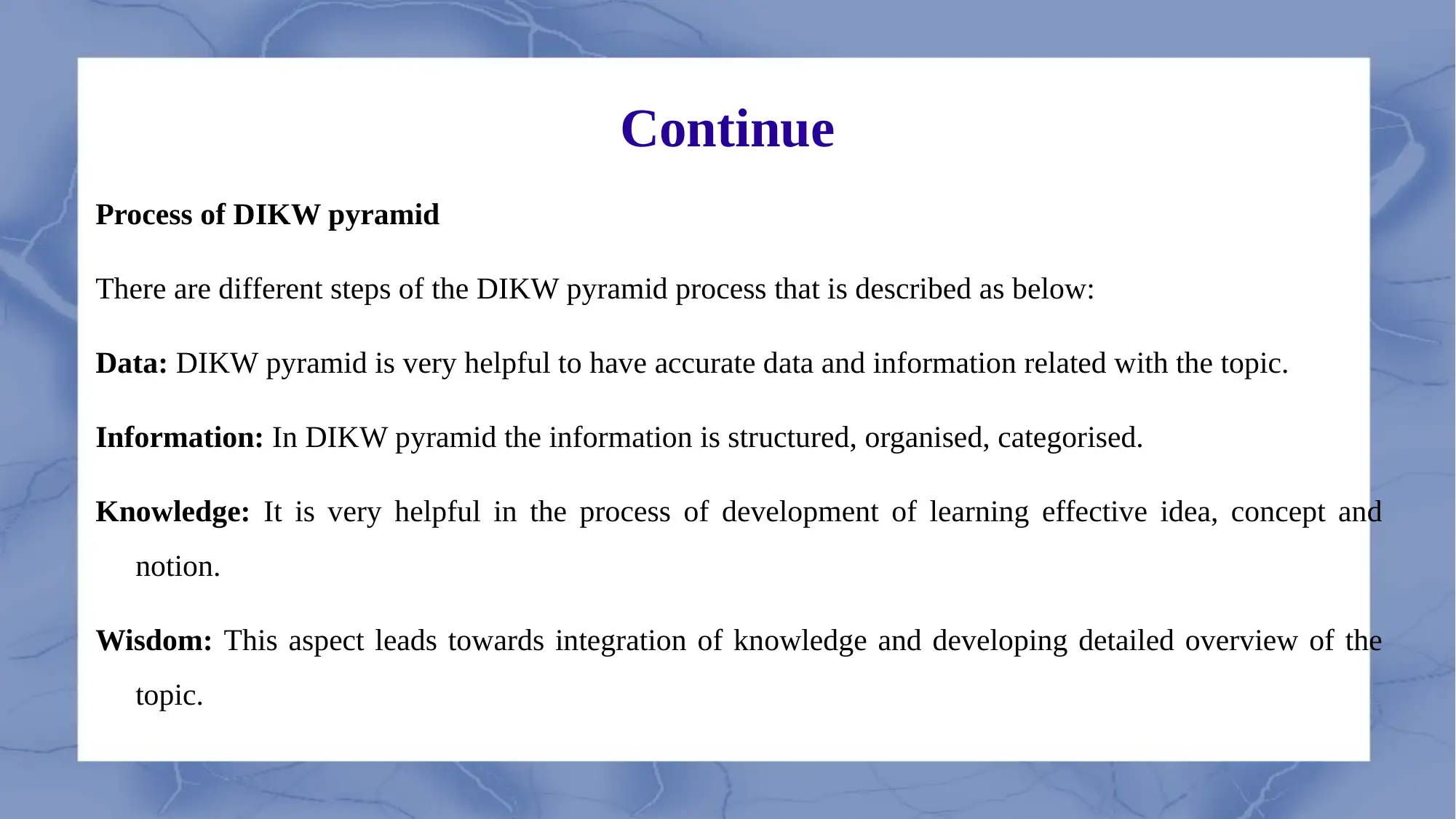
Continue
Process of DIKW pyramid
There are different steps of the DIKW pyramid process that is described as below:
Data: DIKW pyramid is very helpful to have accurate data and information related with the topic.
Information: In DIKW pyramid the information is structured, organised, categorised.
Knowledge: It is very helpful in the process of development of learning effective idea, concept and
notion.
Wisdom: This aspect leads towards integration of knowledge and developing detailed overview of the
topic.
Process of DIKW pyramid
There are different steps of the DIKW pyramid process that is described as below:
Data: DIKW pyramid is very helpful to have accurate data and information related with the topic.
Information: In DIKW pyramid the information is structured, organised, categorised.
Knowledge: It is very helpful in the process of development of learning effective idea, concept and
notion.
Wisdom: This aspect leads towards integration of knowledge and developing detailed overview of the
topic.
Paraphrase This Document
Need a fresh take? Get an instant paraphrase of this document with our AI Paraphraser
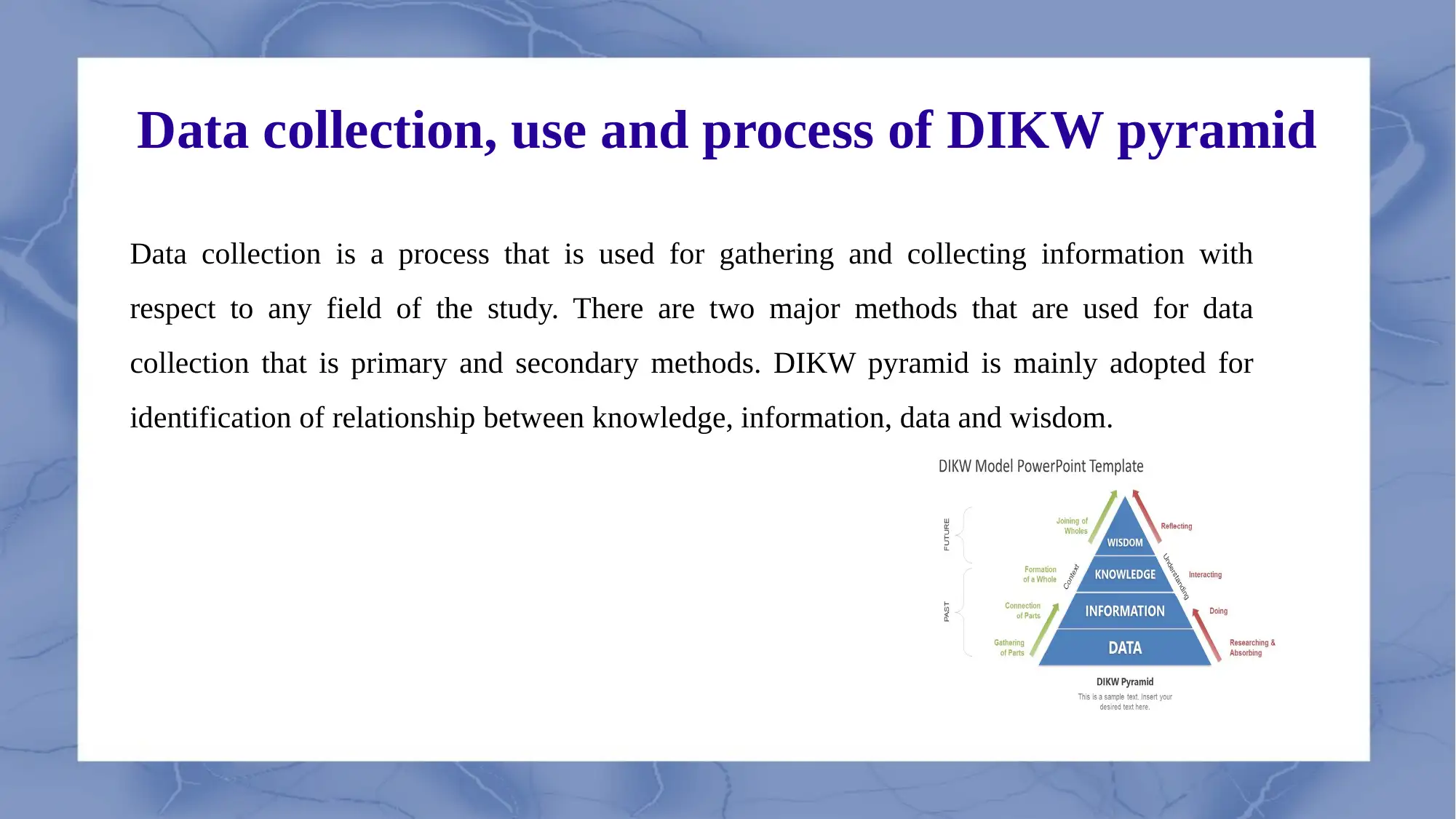
Data collection, use and process of DIKW pyramid
Data collection is a process that is used for gathering and collecting information with
respect to any field of the study. There are two major methods that are used for data
collection that is primary and secondary methods. DIKW pyramid is mainly adopted for
identification of relationship between knowledge, information, data and wisdom.
Data collection is a process that is used for gathering and collecting information with
respect to any field of the study. There are two major methods that are used for data
collection that is primary and secondary methods. DIKW pyramid is mainly adopted for
identification of relationship between knowledge, information, data and wisdom.
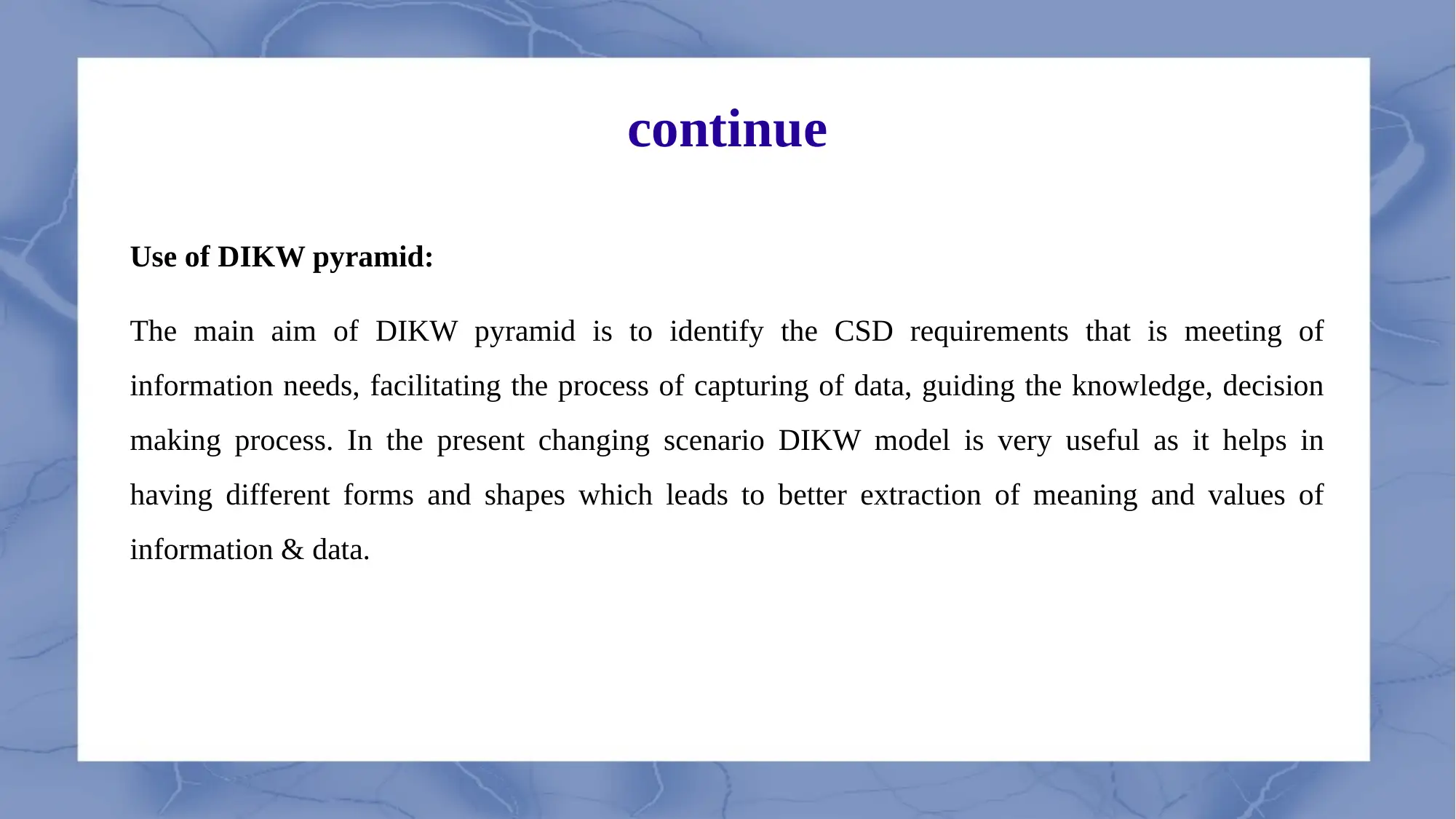
continue
Use of DIKW pyramid:
The main aim of DIKW pyramid is to identify the CSD requirements that is meeting of
information needs, facilitating the process of capturing of data, guiding the knowledge, decision
making process. In the present changing scenario DIKW model is very useful as it helps in
having different forms and shapes which leads to better extraction of meaning and values of
information & data.
Use of DIKW pyramid:
The main aim of DIKW pyramid is to identify the CSD requirements that is meeting of
information needs, facilitating the process of capturing of data, guiding the knowledge, decision
making process. In the present changing scenario DIKW model is very useful as it helps in
having different forms and shapes which leads to better extraction of meaning and values of
information & data.
⊘ This is a preview!⊘
Do you want full access?
Subscribe today to unlock all pages.

Trusted by 1+ million students worldwide
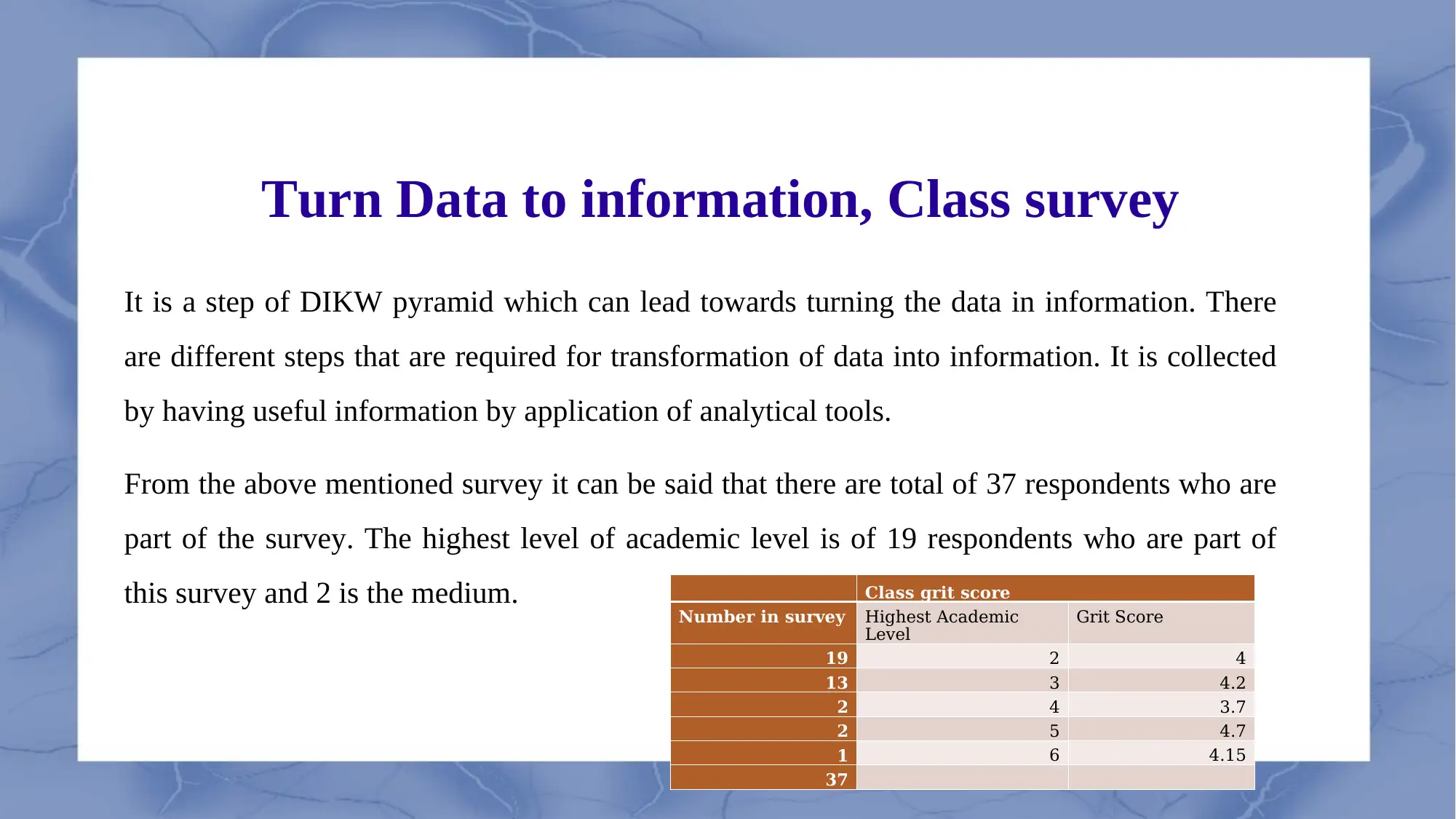
Turn Data to information, Class survey
It is a step of DIKW pyramid which can lead towards turning the data in information. There
are different steps that are required for transformation of data into information. It is collected
by having useful information by application of analytical tools.
From the above mentioned survey it can be said that there are total of 37 respondents who are
part of the survey. The highest level of academic level is of 19 respondents who are part of
this survey and 2 is the medium. Class grit score
Number in survey Highest Academic
Level
Grit Score
19 2 4
13 3 4.2
2 4 3.7
2 5 4.7
1 6 4.15
37
It is a step of DIKW pyramid which can lead towards turning the data in information. There
are different steps that are required for transformation of data into information. It is collected
by having useful information by application of analytical tools.
From the above mentioned survey it can be said that there are total of 37 respondents who are
part of the survey. The highest level of academic level is of 19 respondents who are part of
this survey and 2 is the medium. Class grit score
Number in survey Highest Academic
Level
Grit Score
19 2 4
13 3 4.2
2 4 3.7
2 5 4.7
1 6 4.15
37
Paraphrase This Document
Need a fresh take? Get an instant paraphrase of this document with our AI Paraphraser
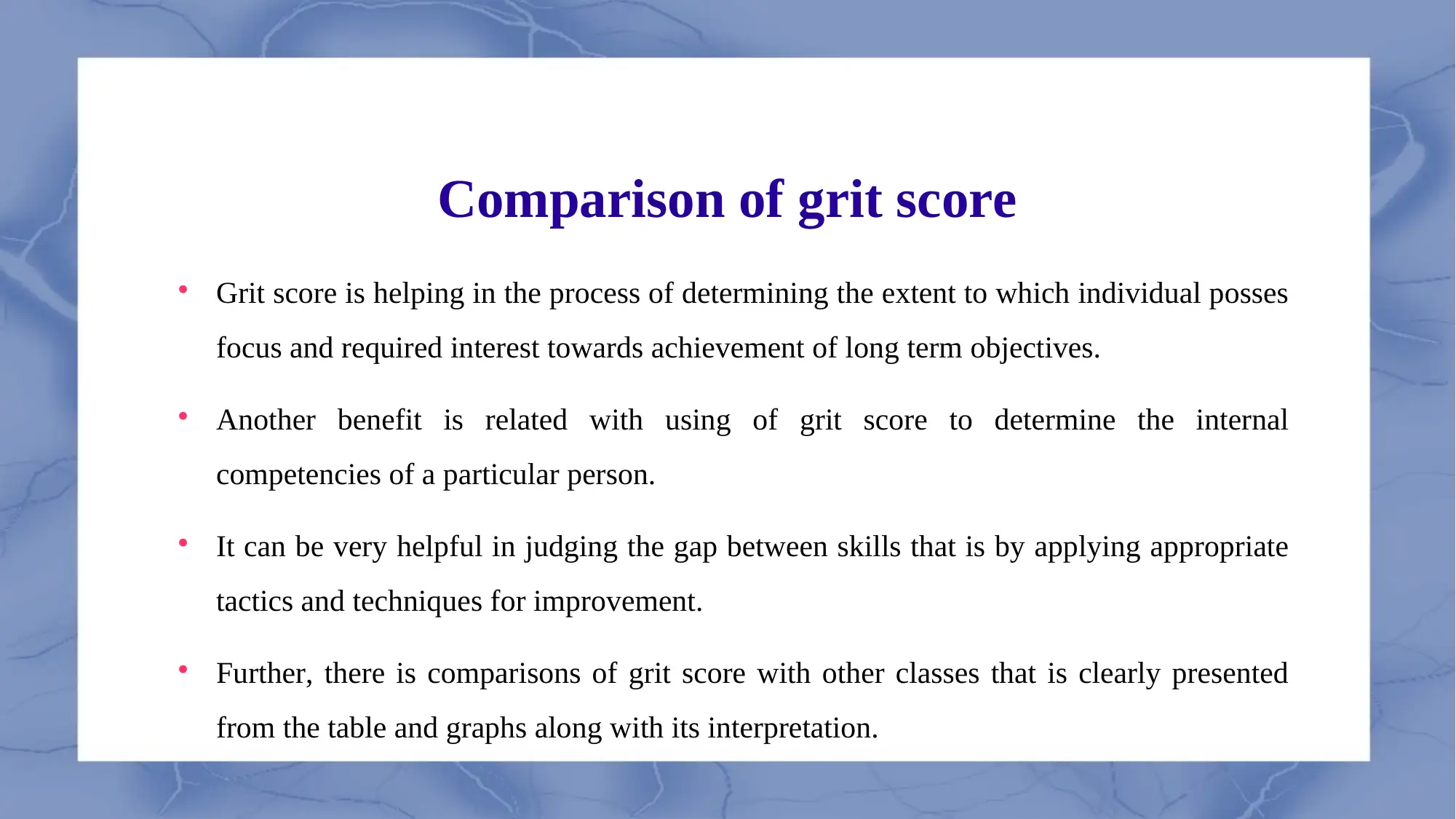
Comparison of grit score
Grit score is helping in the process of determining the extent to which individual posses
focus and required interest towards achievement of long term objectives.
Another benefit is related with using of grit score to determine the internal
competencies of a particular person.
It can be very helpful in judging the gap between skills that is by applying appropriate
tactics and techniques for improvement.
Further, there is comparisons of grit score with other classes that is clearly presented
from the table and graphs along with its interpretation.
Grit score is helping in the process of determining the extent to which individual posses
focus and required interest towards achievement of long term objectives.
Another benefit is related with using of grit score to determine the internal
competencies of a particular person.
It can be very helpful in judging the gap between skills that is by applying appropriate
tactics and techniques for improvement.
Further, there is comparisons of grit score with other classes that is clearly presented
from the table and graphs along with its interpretation.
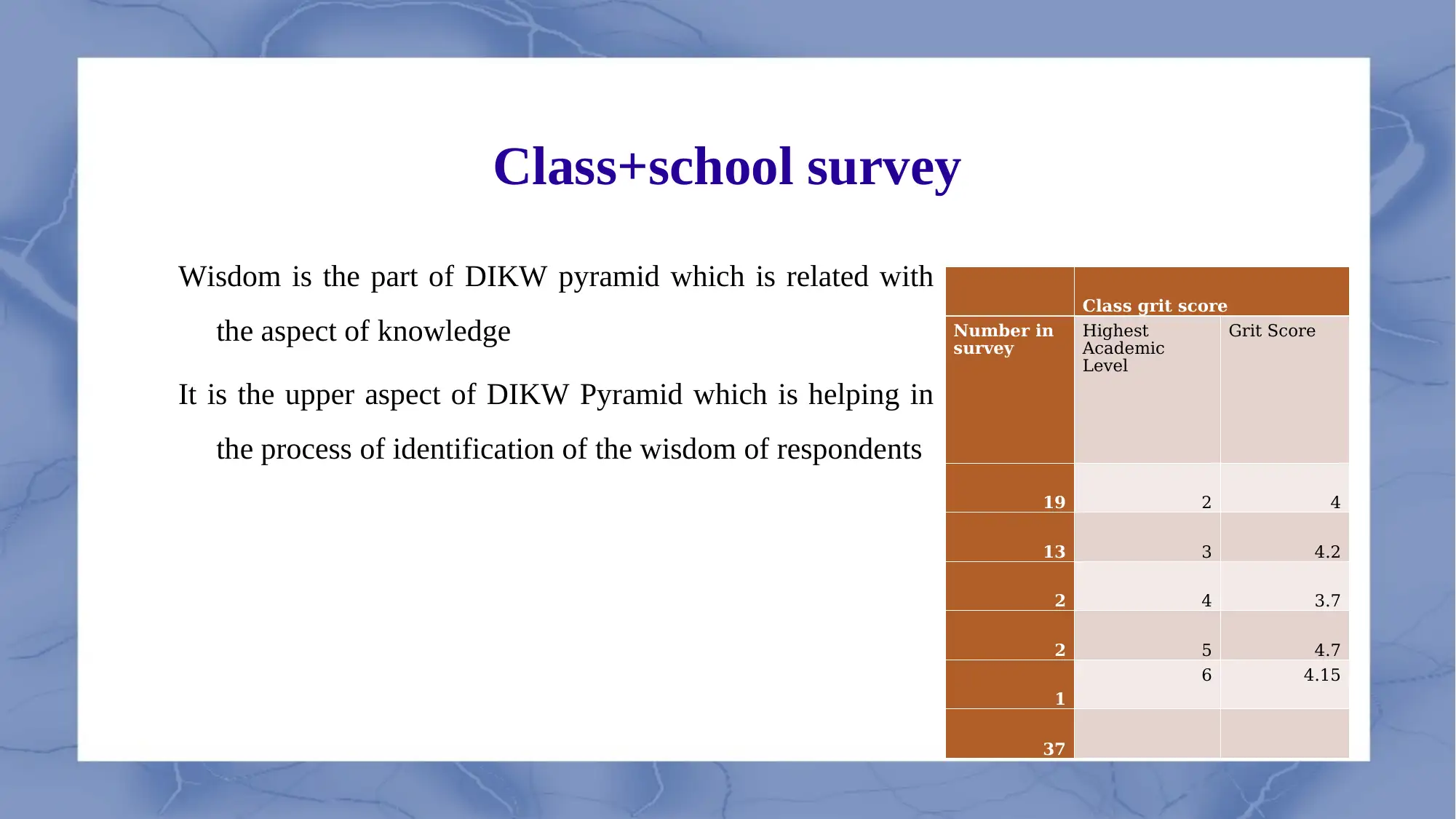
Class+school survey
Wisdom is the part of DIKW pyramid which is related with
the aspect of knowledge
It is the upper aspect of DIKW Pyramid which is helping in
the process of identification of the wisdom of respondents
Class grit score
Number in
survey
Highest
Academic
Level
Grit Score
19 2 4
13 3 4.2
2 4 3.7
2 5 4.7
1
6 4.15
37
Wisdom is the part of DIKW pyramid which is related with
the aspect of knowledge
It is the upper aspect of DIKW Pyramid which is helping in
the process of identification of the wisdom of respondents
Class grit score
Number in
survey
Highest
Academic
Level
Grit Score
19 2 4
13 3 4.2
2 4 3.7
2 5 4.7
1
6 4.15
37
⊘ This is a preview!⊘
Do you want full access?
Subscribe today to unlock all pages.

Trusted by 1+ million students worldwide
1 out of 14
Related Documents
Your All-in-One AI-Powered Toolkit for Academic Success.
+13062052269
info@desklib.com
Available 24*7 on WhatsApp / Email
![[object Object]](/_next/static/media/star-bottom.7253800d.svg)
Unlock your academic potential
Copyright © 2020–2026 A2Z Services. All Rights Reserved. Developed and managed by ZUCOL.





